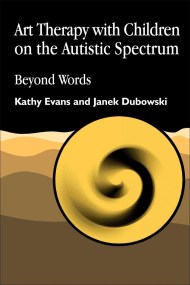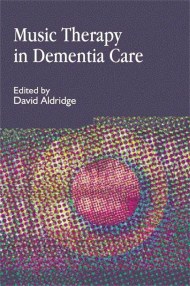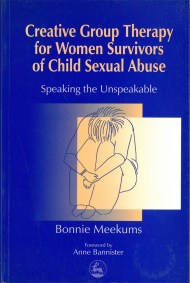Healthy Attachments and Neuro-Dramatic-Play
Breaking new ground in the areas of attachment and child development, Sue Jennings introduces the concept of ‘Neuro-Dramatic-Play’ exploring the sensory experiences that take place between mother and child during pregnancy and the first few months after birth. She explains how this interaction, that is essentially ‘dramatic’ in nature, is of crucial importance for the infant to develop a healthy brain, strong attachments and future resilience.
Based on sound experience and observation, this book consolidates current theories of neuroscience, attachment and therapeutic intervention and challenges commonly held psychoanalytic ideas of child development. By expanding on the often narrow view of what is understood by attachment, this book makes a strong case for early years inclusion of play and arts therapies. Neuro-Dramatic-Play is also discussed in relation to fostering and adoption, teenagers and young adults, and children with developmental or cognitive disabilities.
This accessible text will interest all therapists and practitioners who work with children and teenagers, including child psychotherapists, psychologists, social workers, paediatric and perinatal nurses, paediatricians, child psychiatrists and play and arts therapists, and post-graduate students.
Based on sound experience and observation, this book consolidates current theories of neuroscience, attachment and therapeutic intervention and challenges commonly held psychoanalytic ideas of child development. By expanding on the often narrow view of what is understood by attachment, this book makes a strong case for early years inclusion of play and arts therapies. Neuro-Dramatic-Play is also discussed in relation to fostering and adoption, teenagers and young adults, and children with developmental or cognitive disabilities.
This accessible text will interest all therapists and practitioners who work with children and teenagers, including child psychotherapists, psychologists, social workers, paediatric and perinatal nurses, paediatricians, child psychiatrists and play and arts therapists, and post-graduate students.
Newsletter Signup
By clicking ‘Sign Up,’ I acknowledge that I have read and agree to Hachette Book Group’s Privacy Policy and Terms of Use
Reviews
In this thoroughly engaging book, Sue Jennings delights us once again with her often playful insights into the early years of a child's life...As always, when reading Sue Jennings' Work, I came away from the experience feeling enriched and rewarded, and I strongly recommend this book to anyone who works with children, no matter what their age.
Sue Jennings, in this important new book, breaks new ground in the attachment debate and shows us it is the sensory, playful interactions that naturally occur between mother and child during the first six months of life, that form this bond... Sue Jennings adopts a familiar style of relating to the reader - so that it feels almost that she is rolling up her sleeves and "getting down to it" in the many practical and sometimes surprising ways she describes of applying NDP.
So this is a book for mothers, for mothers-to-be as well therapists, psychologists, carers and all the professions that become involved when this healthy bond is not formed. My hope is that this book becomes a core book in the teaching of attachment theory because it has much to contribute to current understanding. I hope its findings reach those government departments who are seeking to find solutions to problems that are the result of failure of individuals to form healthy attachments and that this leads to the funding of NDP projects and a greater trust in the arts therapies in providing effective solutions to these serious problems.
This is a must-have book for creative arts and play therapists and another fascinating book from this well-known author. It is especially powerful in providing insight into the importance of a mother's relationship with her unborn baby and their interactions during the first six months of life... The final chapter is essential reading for it is here that Jennings describes how NDP can help professionals in their choices and approach to therapeutic work with children... This chapter would make an excellent text for practitioners to discuss at a networking and support group. The appendix does, however, provide a guide to NDP games and activities suitable for all ages from pregnancy through to adulthood and including embodiment, projection and role (EPR) which sits alongside the NDP approach. An interesting book which combines theory, practical ideas and philosophical debate - I enjoyed it very much and would recommend it.
Jenning's book is easy to read and full of helpful references to other practitioners and ideas for different ways of applying her approach. It is a delightful bringing together of different approaches and captures, under the umbrella of Dramatherapy, attachment work that creatively emulates early mother and child interactions. A must read for anyone working with children who have had a rupture in their early attachment relationships and need help to develop a healthier secure attachment.
Jennings provides a refreshing and informative approach to looking at the needs of the new born baby which is innovative and backed up with research. Her contribution in this area is particularly fascinating and insightful and it illustrates so well, the solid foundation of her concepts.
This is a highly accessible and refreshing text which would be a valuable resource for every therapist's toolkit; and is equally relevant to a wide range of professionals working with children and families.
In this book, Sue Jennings describes her groundbreaking theory of Neuro-Dramatic-Play. According to this theory, the foundation for a secure attachment is formed by a mother's playfulness with her baby during pregnancy and the first six months of life. Highly recommended!
This heartfelt book offers practitioners and parents exceptional guidance about how to engage a baby or child in vital dramatic play as soon as it makes its presence known. Its pages brim with fun activities, sound reflections on their rationale, and above all, with authoritative optimism.
In NDP, Sue Jennings explores the little understood process of the early shaping of the brain on the primitive, unconscious and nonverbal stage of mother-child interactions. On this journey, she brings to bear her considerable experience, solid intuition, and large heart. While most theoreticians tend to become too theoretical in the face of the unknown, Sue Jennings stays grounded in the body, intimate relationships, and moment-to-moment experience - a methodology sorely needed in the synthesis of neuroscience, human development and adult life. I recommend that you take this journey with Dr. Jennings.
Sue Jennings emphasises playfulness as a critical component in the early stages of developing attachment relationships and she highlights its contribution to neurological development. She provides a useful introduction to an important area; this book will entice and provide guidance to a range of practitioners, and parents, to engage in creative care of young infants and vulnerable others
Another fascinating book by Dr Sue Jennings which gives an insight into the importance of a mother's relationship with her unborn child and their interactions during the first six months. NDP builds the foundation for healthy attachment play and compliments the EPR paradigm. Examples of NDP enable the reader to identify what usually comes naturally in the development of healthy attachments. The extensive list of activities, games and interactions suggested by Sue will be invaluable for my therapeutic work in the future.






















